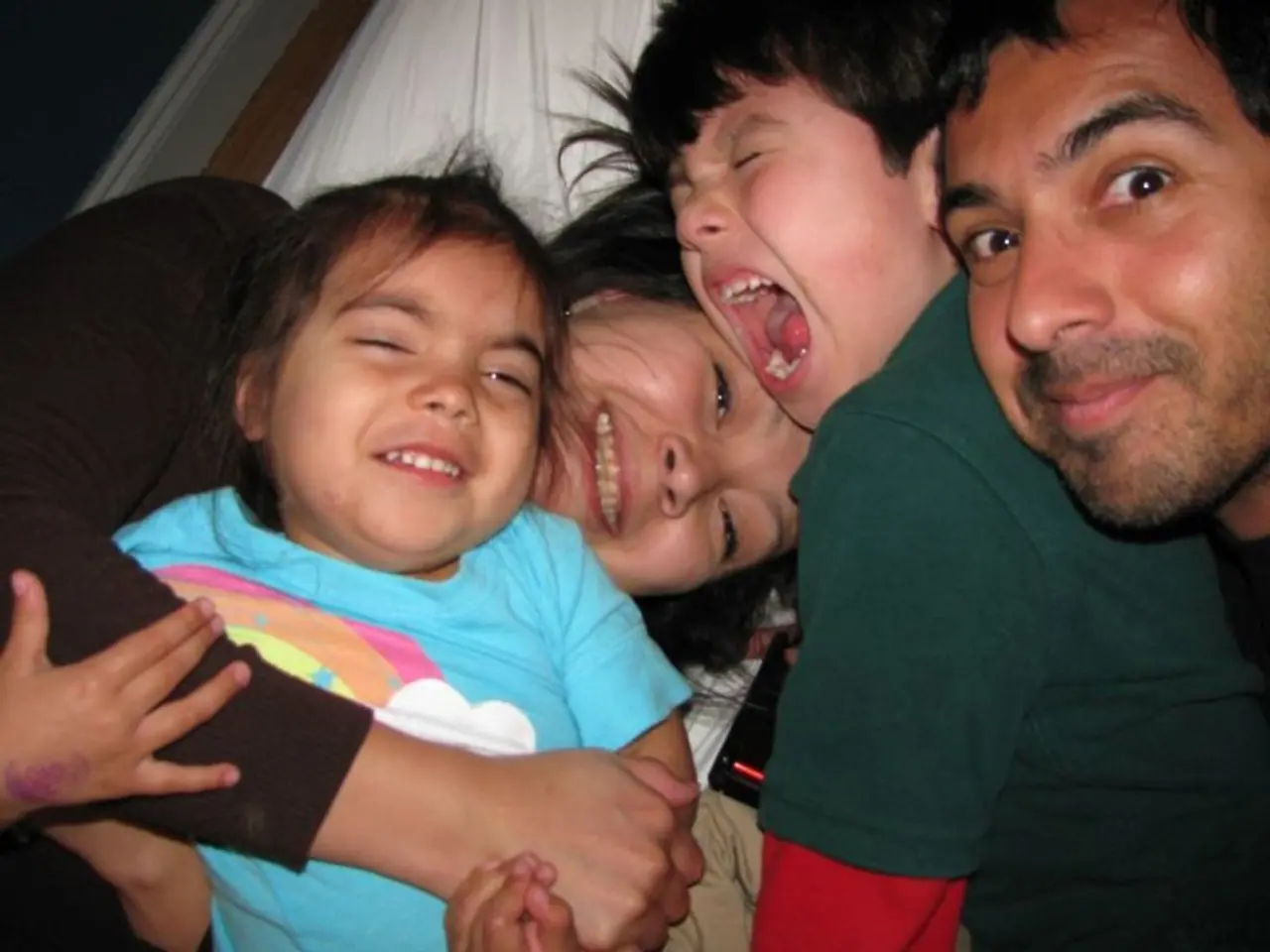Tech-Related Stress Disorder orthosomnia Capturing Attention: Over-Fixation with Sleep Causing Restlessness for Many
Orthosomnia, a sleep disorder that affects high-achieving or anxious individuals, has become a growing concern in the age of sleep tracking technology. Martin Seeley, a sleep expert at MattressNextDay, explains that this condition is characterized by an excessive preoccupation with achieving 'perfect' sleep scores, often fueled by using sleep-tracking devices and apps.
Orthosomnia is defined as an excessive preoccupation with sleep data from tracking devices, causing stress and anxiety that interfere with normal sleep patterns. Symptoms of orthosomnia include excessive worry about sleep, difficulty falling asleep, and feeling restless or agitated during the night.
Sleep tracking technology, including consumer devices like the WHOOP and Oura Ring, provides sleep data that is only moderately accurate. While useful for spotting long-term trends, these devices can present inconsistent or imperfect data on a day-to-day basis, leading to confusion and mistrust or an overreliance on the numbers rather than subjective sleep experience.
This can create or exacerbate sleep performance anxiety, where individuals become worried about their sleep quality to the point that the anxiety itself disrupts the ability to fall or stay asleep. The pressure to achieve an ideal sleep score can generate stress that undermines natural sleep cues, creating a vicious cycle of poor sleep and increased monitoring.
Martin advises that a flexible but consistent sleep routine and the use of calming rituals such as deep breathing or mindfulness before sleep time can help manage orthosomnia. Cognitive behavior therapy for insomnia (CBT-I) is also highly effective for issues that seem to be staying, like high levels of anxiety.
In addition to these strategies, creating a tranquil bedroom environment can also help manage orthosomnia. A low-cortisol bedroom that's digitally undressed, using soft, plush, padded silk masks, and ditching your phone alarm in favour of an alarm clock like the Sunrise Clock from Lexon, can all contribute to a restful slumber.
In summary, while sleep trackers are intended as tools to improve sleep hygiene, for some individuals they can promote orthosomnia by fostering sleep performance anxiety. This anxiety arises from frequent checking of often imperfect data, leading to stress and worsening sleep quality, despite time spent attempting to optimize rest based on device feedback. Orthosomnia is particularly common in perfectionists and those prone to anxiety, emphasizing the need to balance technology use with trusting bodily signals and possibly consulting professionals if anxiety around sleep data becomes disruptive.
[1] https://www.ncbi.nlm.nih.gov/pmc/articles/PMC6705842/ [2] https://www.ncbi.nlm.nih.gov/pmc/articles/PMC6888324/ [3] https://www.ncbi.nlm.nih.gov/pmc/articles/PMC6705842/ [4] https://www.ncbi.nlm.nih.gov/pmc/articles/PMC6888324/
- The excessive preoccupation with sleep data from tracking devices, as seen in orthosomnia, is a growing concern in the art of sleep science, particularly for high-achieving or anxious individuals.
- It is important to note that while sleep tracking technology can provide useful information about long-term trends, the colorful and sometimes inconsistent data it presents can fuel a 'trend' of sleep performance anxiety, leading to interferences with healthy sleep patterns.
- To manage orthosomnia, individuals are advised to cultivate a rustic but consistent sleep routine, incorporate calming rituals such as deep breathing or mindfulness, create a health-and-wellness-friendly bedroom environment, and seek help from mental health professionals if needed.
- Despite the advancements in sleep technology, it is crucial to remember that the quest for perfect sleep scores should not overlook the importance of trusting one's own bodily signals, just as one would trust one's intuition in other aspects of mental health.




